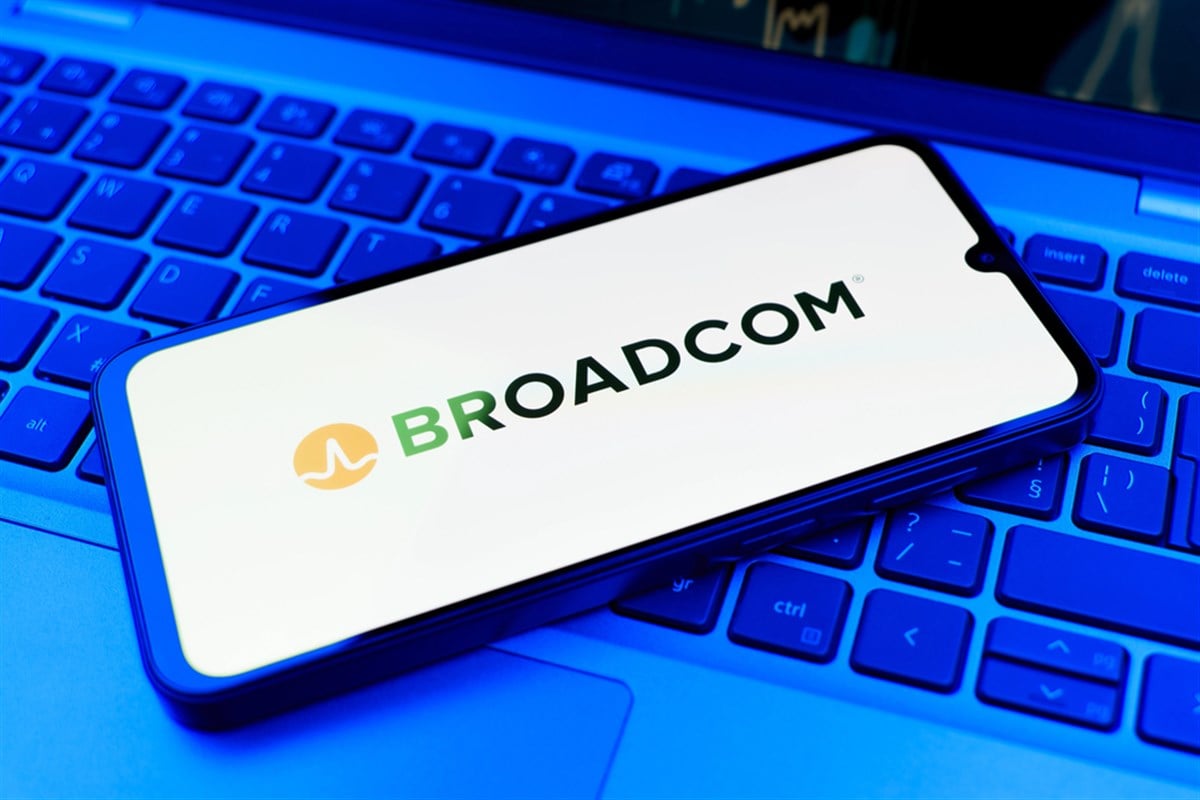
As one of the largest companies in the world, semiconductor stock Broadcom (NASDAQ: AVGO) naturally has relationships with some of the other most prominent firms on the globe. Due to the market fixation on AI, many have become aware of Broadcom’s relationship with Google's parent company, Alphabet (NASDAQ: GOOG). Alphabet developed its Tensor Processing Units (TPUs) with Broadcom’s chip technology, which it uses to train its AI models.
However, outside of AI, Broadcom also has a historical relationship with the largest public company in the world, Apple (NASDAQ: AAPL). Apple uses Broadcom chips in its wireless consumer devices. This relationship may take on a new form, as Broadcom has reportedly been working with Apple to develop AI chips.
The analysis below will dive into Broadcom’s relationship with Apple. Just how significant is Broadcom’s non-AI Apple business? How exposed could Broadcom be to tariff-related risks within this business line? Additionally, is Apple actually trying to build AI chips with Broadcom technology, and what type of upside could this mean for Broadcom if so?
Apple: Broadcom’s Wireless Stalwart
Broadcom’s non-AI relationship with Apple is big. Before fiscal Q1 2025, Broadcom categorized its semiconductor revenues as follows: networking, wireless, server storage, broadband, and industrial. In Q4 2024, the company brought in approximately $2.2 billion in wireless revenue. Almost all of this likely came from Apple.
Press releases clearly show that Broadcom makes chips used in Apple products. This includes things like WiFi cards and 5G radio frequency components. In its Q2 2024 earnings call, Broadcom referenced a North American wireless customer, saying that it “represents all of our wireless business.” Reading between the lines, they are clearly talking about Apple. Overall, this $2.2 billion in wireless revenue represented nearly 16% of Broadcom’s total $14 billion in revenue that quarter.
Clearly, Apple is a huge part of Broadcom’s business. So, how could tariffs impact Broadcom’s business due to its relationship with Apple?
Recent Tariff Changes Provide a Reprieve for Apple and Broadcom
Markets were highly concerned about Apple after the tariff back-and-forth between the United States and China. Apple has Chinese companies assemble around 90% of its iPhones. President Trump's 145% reciprocal tariffs on Chinese imports would force Apple to raise iPhone prices, which could greatly hurt sales volume. This would have been bad news for Broadcom, as fewer iPhone sales mean fewer chip sales.
It looks like Apple and Broadcom can breathe a sigh of relief, at least for now. The United States Customs and Border Protection recently announced that electronics will be exempt from these reciprocal tariffs. However, these companies are far from out of the woods. U.S. Commerce Secretary Howard Lutnick said tariffs on electronics are still coming.
The government will do this using sector-specific duties on semiconductors. Lutnick stated that the government could enact these in one to two months.
Overall, it's difficult to say anything concrete with tariff policies changing daily. However, for Broadcom, these tariffs that could soon affect Apple products are destructive. They will hurt the firm’s non-AI chip business, possibly in a big way. It is important to note that Broadcom’s wireless business really wasn’t growing much anyway.
Growth in this segment has ranged from slightly positive to slightly negative over many of the past quarters. Despite this, Broadcom has continued to succeed, indicating the company may not be massively hurt by lower Apple device demand.
Broadcom and Apple's AI Ambitions and Potential Partnership
[content-module:Forecast|NASDAQ: AVGO]In early December 2024, reports emerged that Apple was working with Broadcom to build its own AI chip. Apple wants to use the product in AI servers to enhance the capabilities of Apple Intelligence. Although Apple and Broadcom have not verified this relationship, some clues suggest that this could be true. Apple’s $500 billion investment in the United States will go largely toward making AI servers.
Within this announcement, Apple said the servers will use “Apple silicon," indicating that Apple is designing custom chips. Tech firms like Alphabet have previously found a key partner in Broadcom in designing custom chips. Thus, it seems very possible that Apple and Broadcom are pairing up on this venture to do the same.
This could significantly boost Broadcom’s revenues. Apple is the world’s most valuable public company, but many have seen the firm as a laggard when it comes to adopting AI. Broadcom would be happy to help them catch up.
Where Should You Invest $1,000 Right Now?
Before you make your next trade, you'll want to hear this.
MarketBeat keeps track of Wall Street's top-rated and best performing research analysts and the stocks they recommend to their clients on a daily basis.
Our team has identified the five stocks that top analysts are quietly whispering to their clients to buy now before the broader market catches on... and none of the big name stocks were on the list.
They believe these five stocks are the five best companies for investors to buy now...

